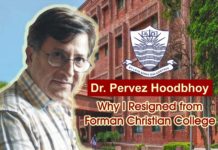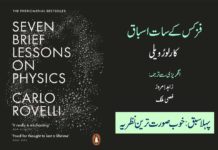The Eqbal Ahmad Centre for Public Education (EACPE) seeks to foster the use of science and reason to understand nature and society and so better enable all citizens of Pakistan to participate fully in the political, social, economic, and cultural life of their society; to exercise their democratic rights and responsibilities; to value human rights, democracy and the rule of law; to promote cultural and religious diversity; to raise awareness of global issues and the natural environment; and to advance the goals of international peace and justice.
EACPE is named to honour the life and work of distinguished Pakistani academic, activist, and public intellectual, Dr. Eqbal Ahmad.
“The EACPE record is very impressive, and hopeful — a rarity these days. About the webpage (design), I don’t have anything useful to say. Have little experience that’s relevant. To me personally, the range and choice of topics is appealing and impressive. I can’t think of any useful way to improve it.”
— Noam
(Received on 5th May, 2017. As a member of the EACPE board, Professor Noam Chomsky was asked to suggest how to improve our main page)









Good lecture by Dr. Nayyar but he should have mentioned also the potential that increase of efficiency in the use of energy offers. In many countries increased energy efficiency offers a more cost-effective option for meeting energy demand as opposed to augmenting primary energy supply. While solar PV is relatively capital intensive, the prices of cells have dropped quite dramatically in the last couple of years. Interestingly, to use intermittent sources like solar and wind, that are non-dispatchable (in the jargon of the electric power industry), one needs to effectively couple them with what is known as “spinning reserve” (peak power plants like gas turbines or peak hydro that can be started very rapidly) to meet the load in case of a sharp drop in the output of a PV array (e.g. due to intermittent cloud cover). In this respect, Pakistan’s gas reserves and could be better utilized. perhaps, in this fashion to work in tandem with solar/wind sources, which the lecturer has stated to have very significant potential in the country.